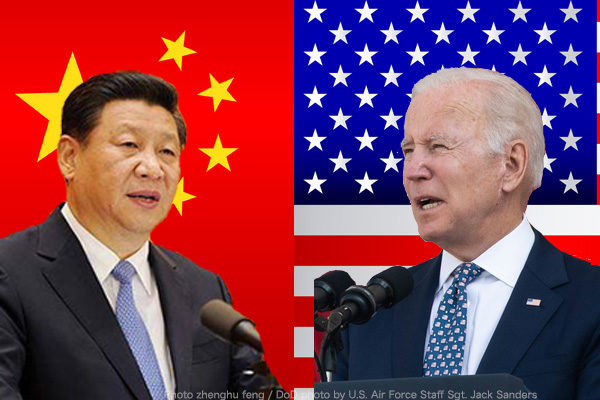The first online meeting between U.S. President Joe Biden and Chinese President Xi Jinping took place on November 16 (Japan time) as the United States called for leader-level engagement and communication to ensure that U.S.-China competition does not veer into conflict. It was not designed to produce specific agreement on any divisive issue. We would need to closely watch whether Biden would revise his hardline attitude toward China in the wake of the summit.
No support for Taiwan independence
As predicted, Biden and Xi remained apart over Taiwan, human rights and other pending issues. Regarding Taiwan Strait tensions growing due to Chinese military aircraft’s frequent approaches to Taiwan, I noticed that the U.S. side did not deny a Chinese media report quoting Biden as saying he would not support Taiwan’s independence. “I would just note that this is something that the United States has reiterated at various points over time,” a senior U.S. administration official said of the Biden remark. What the official said is true.
The two countries might have achieved some progress in nuclear arms control following China’s reported nuclear arms buildup. Biden’s national security adviser Jake Sullivan said the two leaders agreed that they would look to begin to carry forward discussions on strategic stability. But they might not have agreed to go with government-level talks. The Chinese side has indicated that “Track 2” talks between non-government experts would be one of options. At a time when the number of nuclear warheads in China is limited to less than one-10th of the U.S. number, China may have no incentive to officially negotiate nuclear arms reduction.
Not pursuing regime change in China
Rather, we should note that the Biden administration has apparently departed from the previous Trump administration’s China policy regarding two points. First, a senior U.S. administration official said “leader-level engagement” would be required to manage the bilateral competition, indicating the Biden administration has come back to the China engagement policy on which U.S. successive administrations had relied.
Unlike the past administrations, however, the Biden administration is not so optimistic as to believe that engagement might lead China to comply with international rules and even political democratization could be expected. “The Biden administration is not trying to change China through bilateral engagement; we don’t think that’s realistic,” the senior U.S. official said.
Second, the Trump administration in its final days escalated its anti-China attitude to virtually encourage Chinese people to change the communist regime. On the contrary, Biden told Xi that the United States would not seek a regime change in China or enhance alliances to oppose China, according to China’s state-run Xinhua news agency.
It may be too soon to conclude the Biden administration has shifted to a conciliatory policy. The Biden administration has taken a series of measures to counter China including the creation of the AUKUS military security framework between Australia, the United Kingdom and the United States, the enhancement of the Japan-U.S.-Australia-India quadrilateral, or Quad, cooperation mainly in non-military fields to block China’s hegemonistic expansion, and the consideration of a diplomatic boycott of not sending senior government officials to the Beijing Winter Olympics in February 2022.
Nevertheless, Japan should be alert to whether the Biden administration would soften its hardline attitude and make concessions to Beijing, remembering the so-called Nixon Shock in which Japan was left behind the United States’ sudden diplomatic approach to China.
Yasushi Tomiyama is a senior research fellow and Planning Committee member at the Japan Institute for National Fundamentals and a former foreign news editor and bureau chief in Washington, D.C., London and Bangkok for the Jiji Press.


